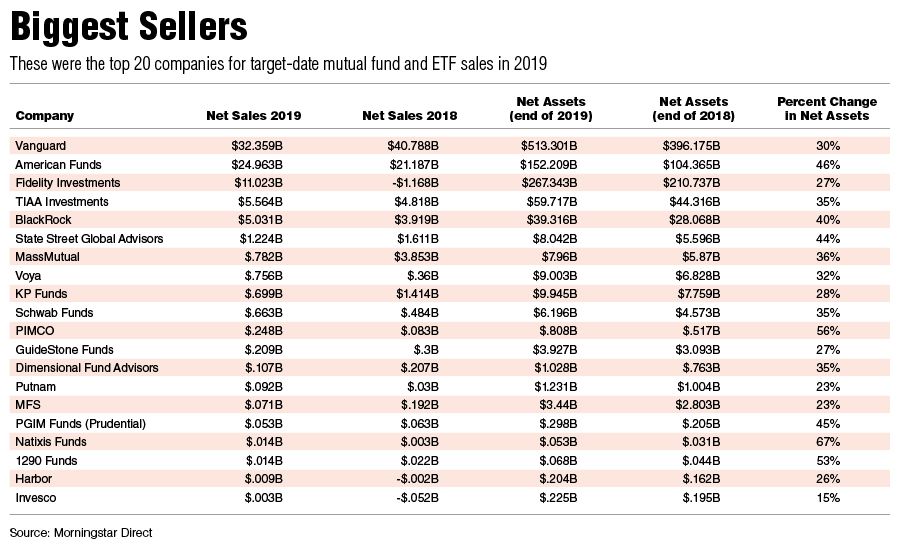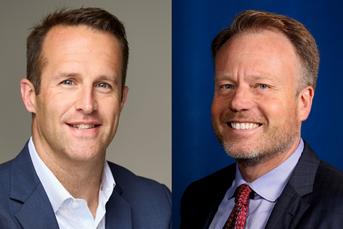Sales, returns push TDF assets up by $290 billion in 2019

Vanguard still accounts for 37% of the market for target-date funds, Morningstar data show
Assets in target-date funds jumped 27% last year to approach $1.4 trillion, up from just under $1.1 trillion at the end of 2018.
The biggest firms retained their lock on the market in 2019, with four companies accounting for 80% of all U.S. target-date mutual fund and exchange-traded fund assets, according to data from Morningstar Direct.
The biggest such manager, Vanguard, represented 37% of that total, roughly the same portion as it did a year prior. The company’s target-date fund assets were $513.3 billion at the end of the year, up from $396.2 billion at the end of 2018, Morningstar data show.
However, target-date sales at Vanguard slowed, falling by more than 20% from the level in 2018. That was in part due to higher sales of collective investment trusts, according to the company. Including those vehicles, Vanguard’s sales hit $69.9 billion last year.
“Overall, our target-date flows accounted for about 50% of the industry’s total target-date cash flows in 2019,” a Vanguard spokeswoman said.

Across the mutual fund and ETF market, sales were nearly $60.6 billion, up 11% from $54.5 billion in 2018, according to the Morningstar data.
After Vanguard, the three largest target-date fund managers by assets are Fidelity, with $267.3 billion, T. Rowe Price ($162.3 billion) and American Funds ($152.2 billion).
“The big winners were definitely low-cost providers,” said Leo Acheson, who leads the Morningstar manager research team covering target-date strategies.
Sales favored index-based series as well as those that incorporate at least some passively managed underlying funds, he said.
Last year marked a turnaround for target-date sales at Fidelity, which saw net inflows of $11 billion, compared with net redemptions from its funds to the tune of $1.2 billion in 2018.
Fidelity declined to comment on the drivers behind the target-date fund sales.
And American Funds’ target-date assets skyrocketed by 46%, due to the mix of sales and strong returns.
“They offer a really good deal for active management,” Mr. Acheson said. “And their performance has been very strong over the long term.”
The data do not include assets in CITs, which have gained favor among large retirement plans in recent years because some of the products offer slightly lower fees than their mutual fund counterparts. Although Morningstar does provide data on CITs, that information is reported voluntarily by asset managers and sometimes does not include the full amount of their assets.
One firm that has seen a dramatic move in client assets from mutual funds to CITs is T. Rowe Price. Its line of target-date mutual funds bled $10.2 billion last year and $13.5 billion in 2018, largely because some retirement plans switched to the collective products, according to Morningstar data and information from T. Rowe’s annual report.
But across products, the company saw $9.8 billion pour into its target-date suites last year because of the heavy sales in its CITs, the company said. Its total target-date assets stood at $292.4 billion at the end of December.
While some defined-contribution plans have shifted to CITs over the past several years, that trend appears to be slowing. In 2018, about 5% of plan sponsors surveyed by Callan said they planned to move their target-date assets to collective investment trusts in 2019. But in the most recent survey, there were no sponsors that said they would do so in 2020.
Learn more about reprints and licensing for this article.








